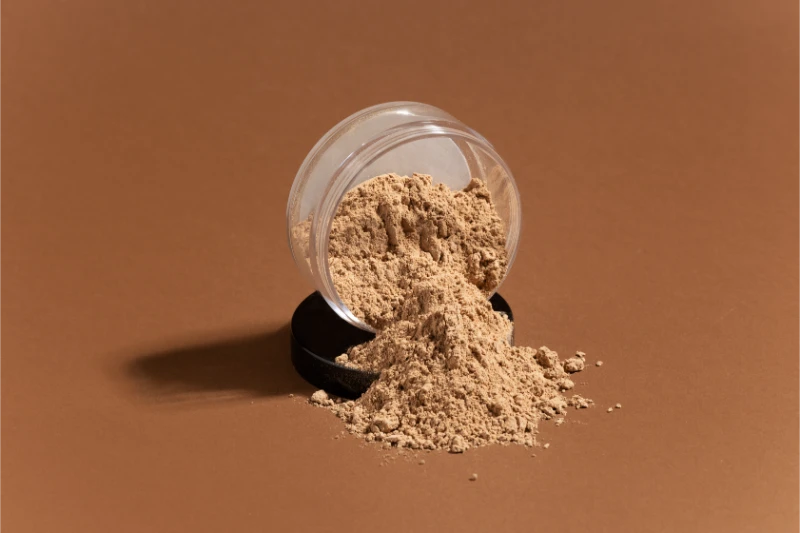


When the lights go off, the screen goes on. Whether we admit it or not, pornography and masturbation are common sexual experiences in today’s society. The prevalence of these practises has been found to be rising among people, both men and women, especially since the invention of the internet. The digital realm has become a destination of enjoying sexual gratification for a large portion of the population. A large survey revealed that almost four out of every five adults indulge in pornography (use).
There is a dark side to all this fun, even though watching porn and masturbating are unquestionably considered to be pleasurable activities alongside sex (some studies claim it is harmless entertainment which is one of the greatest deceits of the 21st Century). Associated (detrimental) consequences have reportedly started to manifest over time, having an impact on both individuals and ultimately society at large. What starts as innocent pleasure-seeking, exacerbates into a serious problem. This is the reason why a closer examination of the situation is necessary before things get too far out of hand.
The brain’s chemistry is complex, and one of its complexities involves the reward systems that respond to pleasurable experiences. A group psychiatrists and a physiologist worked together to explain how this is accomplished through the release of dopamine, the “feel good” chemical. This neurotransmitter respond as natural rewards for activites that is pleasurable or beneficial to you such as eating food, engaging in sexual activity, and other behaviours that are necessary for survival. It is released when your brain is anticipating reward from those acivities. Porn and masturbation also provide a dopamine fix. They are experiences interpreted as pleasures by the brain, which can lead to an excessive release of dopamine as well as other happy hormones like oxytocin and testosterone. These hormones, accorrding to psychology educators and researchers Goldey & van Anders and Uvnäs-Moberg & Peterson, are helpful for stamina, relaxation, stress reduction..
However, Brian Anderson, a cognitive neuroscientist at Johns Hopkins University, theorised that because of the elevated (unnatural) dopamine levels present in the brain while engaging in pornographic activities, your brain becomes more motivated and accustomed to rewarding porn and masturbation over other pleasurable experiences. You (your dopamine receptors) get disruptively rewired to not perceiving any or less pleasure in other experiences. The release of dopamine is no longer enough when doing those things (or at least not as much). You gradually lose interest in the norms and start to show signs of anxiety disorder, stress and depression, thus affecting your mental health. According to a study published in the journal Health Psychology, the number of persons with pornography induced mental disorder continues to rise from previous years, Another is the problem of addiction.
This is one of the frequently discussed risks associated with pornography use. Apparently, its introduction and increased accessibility via the internet and other private media platforms, such DVDs, has led to a dependence on porn and masturbation to get a quick fix of dopamine. As soon as the brain’s reward system notices this pattern, it begins to create pleasing pathways where you desire more of it. As you keep doing it more and more, the resistance level rises and you tend to need more. Some Harvard Medical School educators came to the conclusion that this repeating cycle creates addictive patterns that are comparable to drug or alcohol addiction. Blinka et al. understand that some studies would prefer to refer to the same syndrome as out-of-control, problematic excessive, or compulsive masturbation. They went on to associate with it negative consequences, as with conventional addiction. These include guilt, regret, life dissatisfaction, hindrances in daily lives, social withdrawal and feelings of unfulfillement that slowly worsen over years, as well as the onset of some sexual dysfunction. Even it is proved to be a gateway to other addictions.
Porn and masturbation are technically not sex, but shortcuts to pleasure. Cohort of studies have confirmed how unsafe and unhealthy they are, especially to your sexual life and health. One of such studies examine “the first generation of men who grew up with unlimited online porn,” revealing numerous implications of explicit pornographic contents consumption on relationship:
social impairment, in relation to addiction, has been examined by the American Psychiatric Association to include a decline in various significant social, occupational and recreational activities as well as a failure to fulfil a number of important life obligations (e.g., work, school, or home). When you’re an addict, your brain feels like it’s been hit by a truck – you frequently choose to access pornography and engage in masturbation over engaging in a number of social responsibilities. According to a research, students who had used pornography at some point in their lives exhibited common behaviours, including a disdain for daily responsibilities, a lack of interpersonal connections, a hasty completion of duties (in order to access the websites) and lethargy to go to school or finish school work. Similar to behaviours linked to addiction, individual’s normal daily functioning, especially social behavior tend to be negatively influenced. Some ways that watching porn affects your ability to get along well with other people:
Once pornography use become an addiction, you would be forced to have a daily fix which may will last for a couple of hours, if not longer. You not only invest your energy, which could have been used for other productive pursuits, but also your time. According to a relationship coach, your sexual energy is the greatest and most powerful source of energy you have access to. You can either squander it or use it to your maximum advantage to enhance your life. Pornography and masturbation are inappropriate ways of releasing this energy. They deplete your reservoir of energy, leaving you feeling emotionally and physically drained. Hence the more frequent you release it away through pornography use, the less creative you would be and less productive work you would accomplish. Among the long-term effects of this include decreased stamina and motivation, which cause time wastage, procrastination, and laziness. These hinder us from carrying out our everyday tasks and responsibilities – the essentials such as work and school, and even the recreationals such as shopping or going to the gym. “That’s why some people don’t see much gain in their body even after months of gym,” a study claimed.
Isn’t the simple fact that porn and masturbation increase the possibility of contracting a horrifying case of sexual dysfunction (among other consequences), despite many advocating them as healthy activities, sufficient justification for abstinence? The truth is that porn and masturbation will never allow you to be your best selves. More than what porn has to offer, you deserve better. You deserve real love that hasn’t been contaminated by porn or masturbation. Taking a break (Quitting) from porn and masturbation can have positive benefits for your mind, body and relationships. If you’re struggling with porn or masturbation, there is help available. There are many resources that can help you overcome these problems.
Sources:
Address: Warehouse G22 207 Brisbane Road, Labrador 4215
Phone: 0407 092 705
Email: admin@allsupplements.com.au
eCommerce Development By Melbourne Web Studio